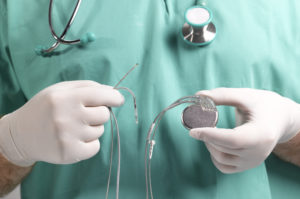DOJ Recoups a total of $1.8 Billion from Health Care Fraud in 2020, Laboratory Recoupments Alone Account for Hundreds of Millions
 The Department of Justice (“DOJ”) has reported that in 2020, the government prosecuted dozens of laboratory owners and operators for anti-kickback related offenses responsible for hundreds of millions in alleged federal health care program loses. DOJ recouped a total of $1.8 billion dollars in connection with healthcare fraud allegations.
The Department of Justice (“DOJ”) has reported that in 2020, the government prosecuted dozens of laboratory owners and operators for anti-kickback related offenses responsible for hundreds of millions in alleged federal health care program loses. DOJ recouped a total of $1.8 billion dollars in connection with healthcare fraud allegations.
Since the public health emergency was announced in March 2020, the Centers for Medicare & Medicaid Services, the U.S. Department of Health and Human Services (“HHS”), Office of the Inspector General (“OIG”), and other law enforcement agencies partnered to investigate and prosecute health care fraud from identified risk areas, including unnecessary laboratory testing related to the COVID-19, genetic sequencing, and cardiac panels.
Laboratories prosecuted in the last two years for health care fraud include: UTC Laboratories Inc. (RenC) ($41.6 million), Boston Heath Diagnostics Corporation ($26.7 million), Logan Laboratories Inc. ($41.0 million), Genova Diagnostics ($43.0 million).
According the to the report, “[t]hroughout FY 2020, HHS-OIG issued 178 audit reports and 44 evaluations, resulting in 689 new recommendations issued to HHS operating divisions. HHS operating divisions also implemented 286 recommendations during FY 2020.” Laboratory-related audit and evaluation findings are as follows:
- “Medicare Advantage (MA) encounter data continue to lack National Provider Identifiers (NPIs) for providers who order and/or refer durable medical equipment, prosthetics, orthotics, and supplies (DMEPOS); clinical laboratory services; imaging services; and home health services. However, almost all MA organizations have data systems that are able to receive and store these NPIs when providers submit them. In addition, a substantial portion of MA organizations reported that providers already are submitting the ordering provider NPIs on claims or encounter records for DMEPOS, laboratory services, and imaging services. Further, a majority of MA organizations require NPIs to be submitted for their other lines of business. Finally, almost half of MA organizations believe that using NPIs for ordering providers is critical for combating fraud.”
- “Total Medicare Part B spending for lab tests increased to $7.6 billion in 2018, despite lower payment rates for most laboratory (lab) tests. The $459.0 million spending increase was driven by: (1) increased spending on genetic tests; (2) ending the discount for certain chemistry tests; and (3) the move to a single national fee schedule. Congress mandated that the Office of Inspector General monitor Medicare payments for lab tests and the implementation and effect of the new payment system for those tests. This report also provides the fifth annual analysis of the top 25 lab tests by Medicare spending.”
Importantly, the report indicates that in 2021 and 2022, DOJ-OIG will have more resources, more complete data, and will therefore be able to provide even more oversight of health care fraud, resulting in “a steady increase in healthcare related audits, inspections, and investigations.”
 In recent months, the Kaiser Health Network (part of the Kaiser Family Foundation) has issued three reports scrutinizing the orthopedic industry and its practices. Each report articulates the stakeholder group’s concerns over relationships among orthopedic and spinal surgeons, orthopedic implant manufacturers, and their sales representatives. Medical device manufacturers, especially those in the orthopedic space, should pay careful attention.
In recent months, the Kaiser Health Network (part of the Kaiser Family Foundation) has issued three reports scrutinizing the orthopedic industry and its practices. Each report articulates the stakeholder group’s concerns over relationships among orthopedic and spinal surgeons, orthopedic implant manufacturers, and their sales representatives. Medical device manufacturers, especially those in the orthopedic space, should pay careful attention. On August 6, 2021, the U.S. Securities and Exchange Commission
On August 6, 2021, the U.S. Securities and Exchange Commission  PhRMA, the pharmaceutical manufacturer trade association,
PhRMA, the pharmaceutical manufacturer trade association,